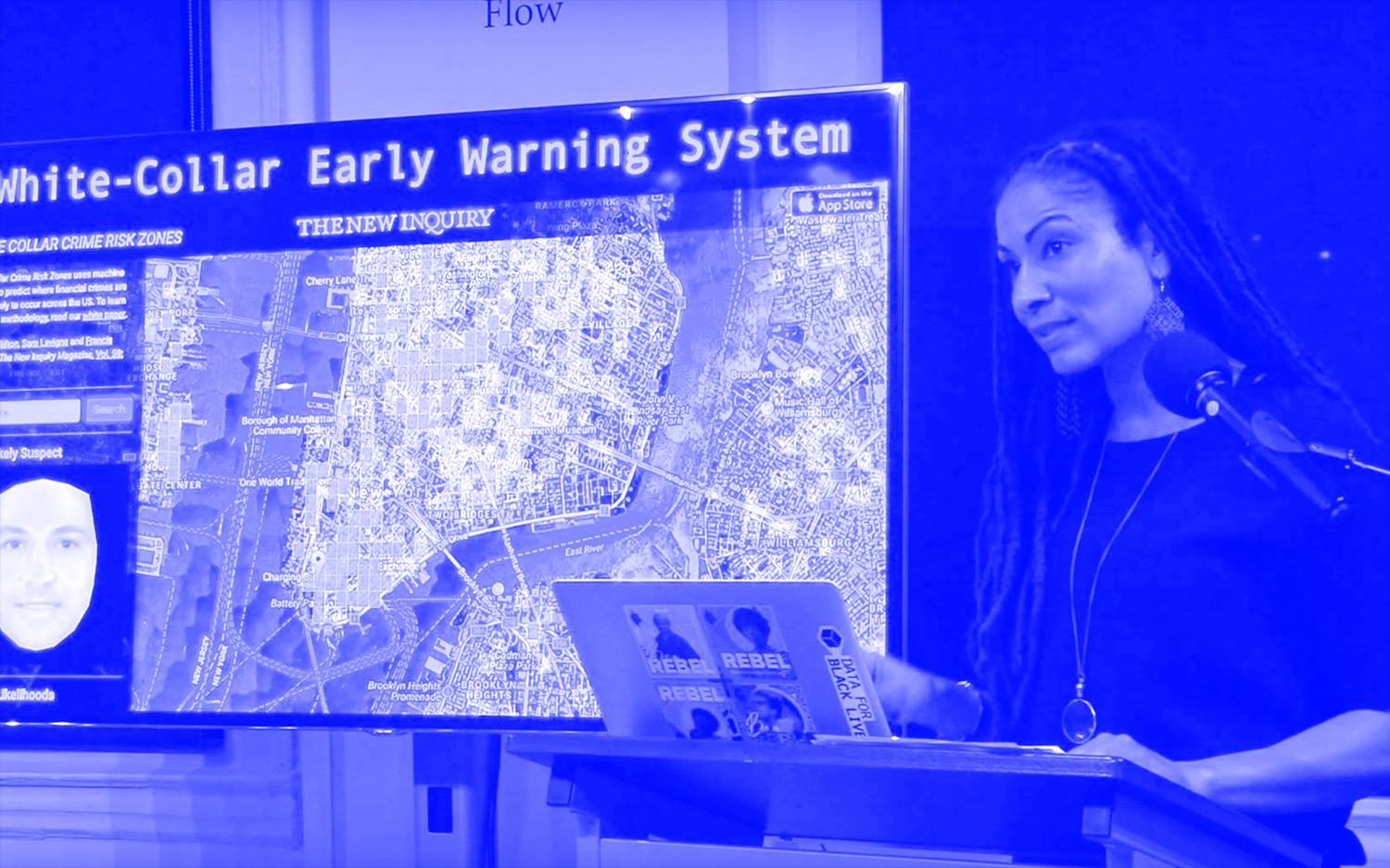Ruha Benjamin presents Race After Technology: Abolitionist Tools for the New Jim Code.
Princeton Professor Ruha Benjamin discusses the relationship between machine bias and systemic racism, analyzing specific cases of “discriminatory design” and offering tools for a socially-conscious approach to tech development. In Race After Technology, Ruha Benjamin cuts through tech-industry hype, from everyday apps to complex algorithms, to understand how emerging technologies can reinforce White supremacy and deepen social inequity. Presenting the concept of “the new Jim Code” she shows how a range of discriminatory designs encode inequity by explicitly amplifying racial hierarchies; by ignoring but thereby replicating social divisions; or by aiming to fix racial bias but ultimately doing quite the opposite.
This event was hosted by Data & Society’s Director of Research Sareeta Amrute.
Ruha Benjamin is Associate Professor of African American Studies at Princeton University, founder of the JUST DATA Lab, and author of Race After Technology: Abolitionist Tools for the New Jim Code (Polity 2019) and editor of Captivating Technology: Reimagining Race, Carceral Technoscience, and Liberatory Imagination in Everyday Life (Duke 2019) among many other publications. Ruha’s work investigates the social dimensions of science, medicine, and technology with a focus on the relationship between innovation and inequity, health and justice, knowledge and power. She is the recipient of numerous awards and fellowships, including from the American Council of Learned Societies, National Science Foundation, Institute for Advanced Study and, in 2017, she received the President’s Award for Distinguished Teaching at Princeton.


